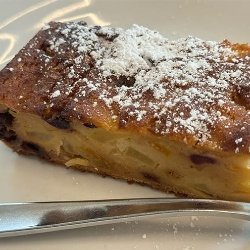Turin reached its height as the first capital of the Kingdom of Italy, and this noble air still permeates the historic parts of the city. Beautiful colonnades that allow you to stroll the streets without an umbrella on a rainy day are one example of its exalted air. As you walk through the elegant spaces created by columns linked into an archway, you can easily imagine yourself back in a time when the nobility would sashay along these same pathways.

The word “nobility” may conjure up a bygone era, but in Italy, aristocratic titles have continued unbroken to this day. Turin was heavily influenced by the Savoy family, and the city is home to clubs that are said to be the most exclusive in Italy. It is a city known for its rich and persistent aristocratic culture.
Turin actually has a strange feel to it. It could come from the city’s history or from the local conditions. It’s pervasive, and people still haven’t quite figured out why. The city has long been associated with magic, and strangely, is counted among the top three for both white magic (Lyon, Prague, Turin) and black magic (London, San Francisco, Turin). In other words, two opposite forces intersect in the city, creating a mystical air.
A direct encounter with this fascinating place is sure to awaken curiosity even in those who are typically disinterested in spiritual matters. It’s truly a special place that should be part of any Italian travel itinerary.
Turin is also a hub for the secret society known as the Freemasons. The Freemasons, originally medieval guilds of stonemasons, are scholars who preserve mysticism and philosophical Enlightenment traditions. Apparently if you pay close attention as you walk around the city, you will discover their symbols—whether or not you are a spiritually sensitive person.
Take Turin’s iconic Mole Antonelliana, for example. The star symbols and geometric patterns carved inside are said to reflect Freemason ideas. Freemason symbols come in many different forms, including those representing architecture, space, and the spiritual world, compasses and rulers, shining eyes on the tops of pyramids, black-and-white checkerboards, and more.

I heard that the Freemasons have a special handshake that they use to recognize one another, with specific hand positions, finger placement, and pressure. Each of these aspects has a meaning that tells them whether the person is a member of their society. It also serves as a code that allows them to distinguish each other’s rank.
Hearing all this made me realize how unthinkingly I go around shaking people’s hands. There could be hidden messages even in the most ordinary everyday actions. It makes you suddenly think of handshakes as a kind of deep, mysterious behavior.
The next time I visit Turin, I’m going to try to be more sensitive to the secret messages hidden in the pages of its history.




















































